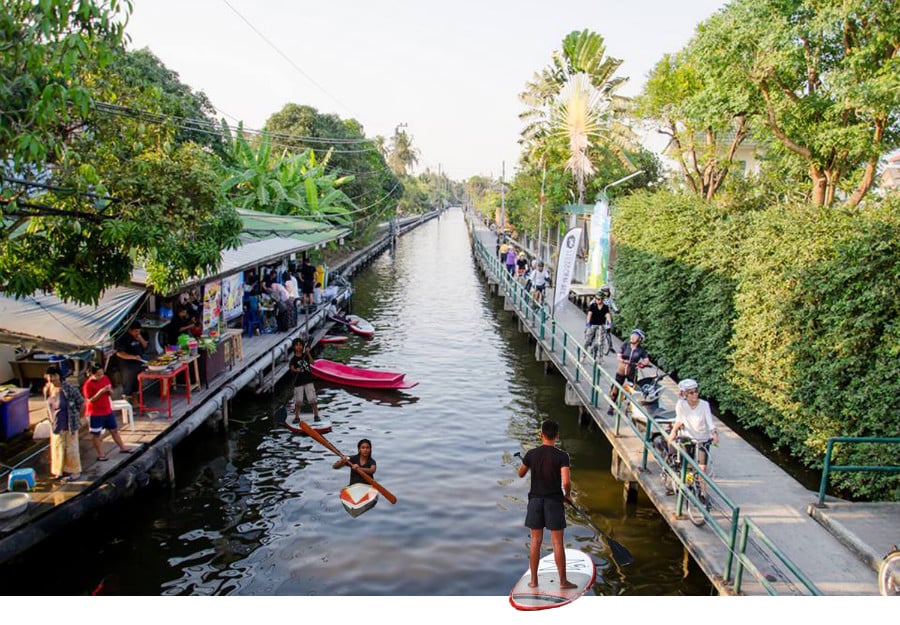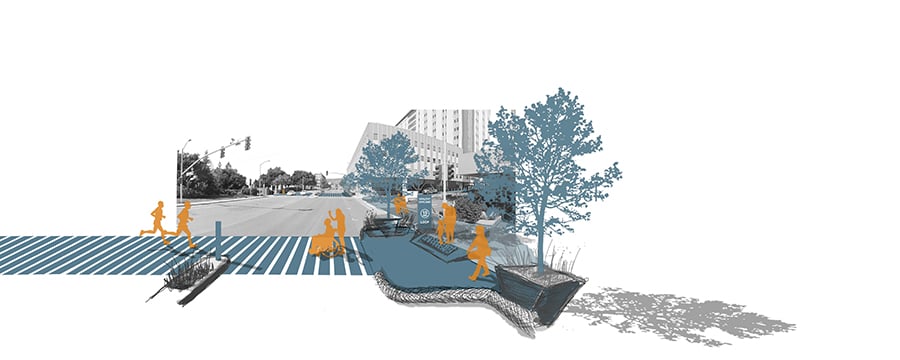
November 9, 2017
AECOM and Van Alen Institute Reveal Urban SOS 2017 Finalists
The student ideas competition seeks to expand how planners traditionally think about cities and hinterlands, finding new fresh solutions and perspectives in the process.

Cities don’t exist in a vacuum. Even though urban areas and their hinterlands are usually viewed separately, they’re deeply interconnected. Their challenges, which range from affordability to sustainability, are frequently on different sides of the same equation.
This competition from AECOM and the Van Alen Institute–dubbed hOUR City and just the latest installment in the Urban SOS® ideas competition series–challenged student teams to create more robust connections among those living within expansive urban regions. By expanding the “hour city” radius (how far one can travel from a city’s center, a historic metric of an urban area’s size) the competition aimed to provide fresh solutions and perspectives to regional planning. As the competition organizers wrote in a press release, “with the forces of globalization and dramatic geographic, social and economic shifts affecting cities everywhere, the time has come to imagine new ways to connect people in suburban, rural, and isolated urban communities.”
86 multidisciplinary teams–with nearly 300 students from 31 countries–entered the competition, which was organized with the help of the Rockefeller Foundation’s 100 Resilient Cities (100RC) initiative. Housing, transportation, economic development, public health, and resiliency were prominent focuses in hOUR City. “It’s inspiring to see how these multidisciplinary student teams have responded to the challenge to connect urban, suburban and rural communities,” said Stephen Engblom, AECOM global cities director. “From multimodal pathways in Bangkok to bold new housing solutions in Melbourne and Belfast, and public health initiatives for vulnerable populations in Oakland, we believe the finalists’ ideas will bear imaginative solutions to real challenges in those cities that translate globally.”
The four finalist teams, which are listed below, will collaborate with the Van Alen Institute, AECOM, and 100RC to develop and finalize their proposals. Their work will be presented to a jury and live audience in Los Angeles on January 23, 2018.

Alternative Ways of Transportation
Team: Wilaiwan Prathumwong, Perada Plitponkarnpim, and Patcharida Sricome
Location: Bangkok, Thailand
This proposal, formulated by students from King Mongkut’s University of Technology Thonburi, features a new type of multimodal pathway “along one of Bangkok’s many underutilized canals, connecting isolated residential communities to public transit,” reads the press release.

The Healthy City
Team: Vincent Clement Agoe, Derek Lazo, Serena Lousich, Mark Wessels, and Sarah Skenazy
Location: Oakland, California
This plan by University of California, Berkeley students is focused on public health. It seeks to better connect communities afflicted by chronic diseases (such as diabetes or asthma) to treatment centers “using traffic calming, recreational opportunities, and new transit options.”

The Holding Project
Team: Sean Cullen and Chris Millar
Location: Belfast, Northern Ireland
Two students from Queen’s University Belfast propose building prefabricated micro-units on vacant, publicly-owned sites in Belfast. The plan, which would promote affordability and economic development, is aimed at renters aged 18 to 35 and would see “tenants…set aside 20 percent of their monthly rent as savings.”

New Suburban Living
Team: Lisa Ann Garner and Lauren Garner
Location: Melbourne, Australia
These two students, from the Universität Der Künste and RMIT University, respectively, developed new housing typologies that aim to address housing shortfalls in Melbourne’s suburbs.
You may also enjoy “Five Years After Hurricane Sandy, New Yorkers Reflect on the Storm’s Legacy.”





